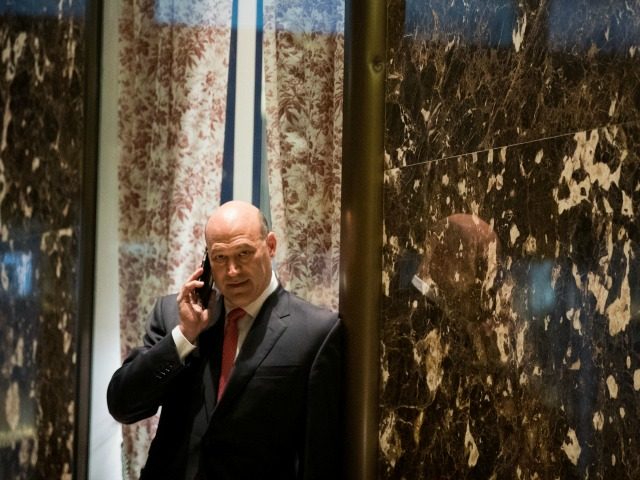Although Republicans in the nation’s capital claim they want to cut taxes for the middle-class, top GOP officials keep coming up with ways to hike taxes that would fall hardest on middle-income Americans.
On the same day that the top GOP tax writer in the House put 401(k) tax hikes back on the table, White House economic adviser Gary Cohn raised the idea of hiking the federal gasoline tax next year to help pay for the administration’s infrastructure plan.
Cohn, the director of the National Economic Council, told a group of moderate and Republican lawmakers that they would have a chance to vote to hike the gas tax as part of the infrastructure plan in early 2018. Cohn’s remarks were first reported by Politico’s Playbook.
Cohn is backing a 7-cent increase to the gas tax, according to The Hill. That would be a 38 percent increase over the current gas tax of 18.4 cents per gallon, a level that Republican lawmakers and conservative activists have successfully resisted raising since 1993.
The increase would raise the tax to around 10.3 percent at current gas prices, up from 7.47 percent today.
Advocating having the federal government take more money from Americans at the gas pump would run contrary Trump administration’s goal of cutting taxes for the middle class. Most studies of the tax have shown that an increase in the gas tax would fall most heavily on the American middle class and the poor, since these households spend far more of their income on gas than the wealthy. When judged by household expenditures, the gas tax would hit middle income Americans the hardest.
A gas tax would also hurt many American businesses because additional money spent to fuel cars leaves households with less money to spend on restaurants, clothing, and leisure. Because it raises the cost of transporting goods, the gas tax would also put upward pressure on the prices of consumer goods. It’s likely that the overall effect of a gas tax would be to lower economic growth, making it more difficult for the administration to achieve its goals of three to four percent growth in GDP.
History suggests that a higher tax may also not add to the administration’s ability to fund infrastructure improvements. The Highway Trust Fund, which is financed through the federal gas tax, has often been used to finance non-highway related spending. Instead, the trust fund’s spending has gone to projects such as squirrel sanctuaries, bike trails, and other things that allegedly “enhance the transportation experience” rather than actual highway infrastructure.
The last serious push to raise the gas tax came from retiring Tennessee Republican Senator Bob Corker, who advocated for a higher tax in 2015.
“What a great idea. American consumers and businesses finally get a break with plunging oil and gasoline prices. Main Street finally has something to cheer about. And then Mr. Corker weighs in with a wet-blanket proposal to raise federal gasoline and diesel taxes by 12 cents a gallon over two years from the current 18.4 cents,” Larry Kudlow wrote at the time.
This time it is Gary Cohn who wants to throw the wet-blanket on American consumers.

COMMENTS
Please let us know if you're having issues with commenting.